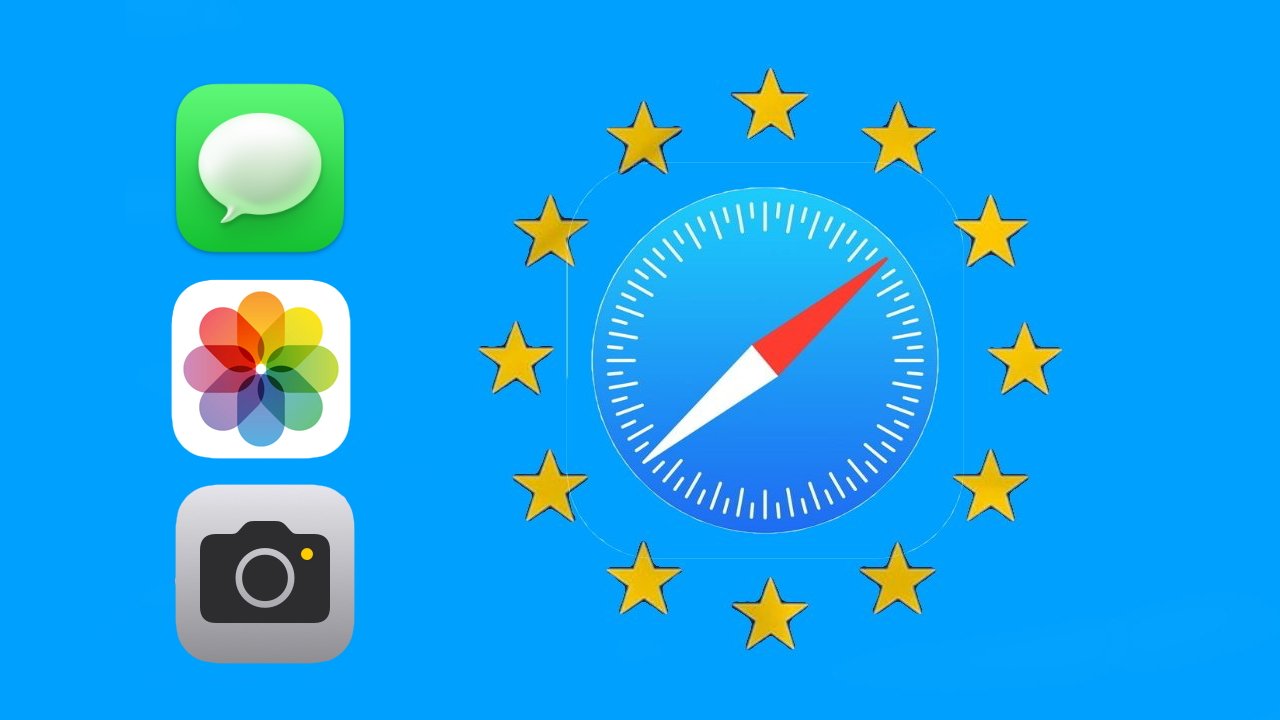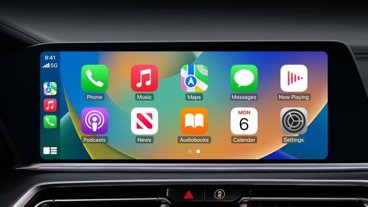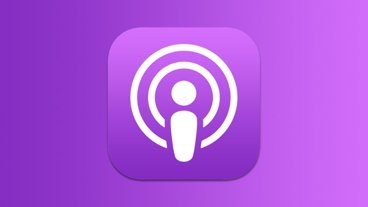Apple is responding to EU criticism about alternative browser choices by simplifying selection, and in addition it's adding more options over user control of other default apps.
In response to the EU's Digital Markets Act (DMA), which also led to third-party app stores, Apple is increasing the options it gives users over default apps. Users in the region are already prompted to choose a default browser, although developers of alternative browsers still found reason to complain.
As before, the first time a user opens Safari on their iPhone or iPad, they will be shown a list of the most popular browsers in their region, and can select any of them. Also as before, the list will be presented in a random order, and will not favor Safari.
What's new is that as well as the title of the browser, Apple's list will show the app's subtitle from the App Store. Plus instead of having to tap to go into a browser listing and select it there, selection is now a tap on that first list.
However, the user will have to scroll through the whole list before they can make their selection.
Assuming that they do not choose Safari, once they have made their selection, Apple will download the new browser if it isn't already installed. Users will see the download progress right in the list of default browsers, and when installed, it will open.
Plus, if Safari is currently in either the Dock or the first page of the user's home screen, it will be automatically replaced by their new choice.
Safari users will be prompted again
Apple is also changing when users will get prompted to consider an alternative browser. As well as the first time they launch Safari on, say, their iPhone, users will be prompted again the first time they open it on their iPad.
If a user in the EU has already gone through the list and chosen Safari, then after the update that adds the new features, they will be prompted again.
Similarly, if they migrate from one iPhone or iPad to another. If Safari was the default on the original machine, then the next time the user opens it on the new device, they will be prompted once more.
Improving all default apps
"For users in the EU, iOS 18 and iPadOS 18 will also include a new Default Apps section in Settings that lists defaults available to each user," says Apple in its updated developer documentation. "In future software updates, users will get new default settings for dialing phone numbers, sending messages, translating text, navigation, managing passwords, keyboards, and call spam filters."
The option to change the default translation and navigation apps will not be available until an update in 2025.
Apple has not said precisely when the rest of these features will be released, but it is to be in an iOS update later in 2024. And alongside more options for choosing default apps, there will also be the ability to delete more of the stock Apple ones.
Specifically, users in the EU will be able to entirely delete:
- App Store
- Messages
- Camera
- Photos
- Safari
Should a user change their mind, all but one of these apps can be redownloaded from the App Store. The exception is the App Store itself, which will have to be reinstalled via Settings.
 William Gallagher
William Gallagher







-m.jpg)






 Charles Martin
Charles Martin
 Marko Zivkovic
Marko Zivkovic
 Andrew Orr
Andrew Orr
 Amber Neely
Amber Neely

 William Gallagher and Mike Wuerthele
William Gallagher and Mike Wuerthele










18 Comments
Huge respect for Apple, that they have complied with this EU stupid requirement so generously. I’ll always stick with Safari anyway.
What a waste of time by the clueless EU. People realizing this thats why Vestager has been fired.
This is total nonsense, why does Apple need to promote competing products to this ludicrous extent. I don't remember any other product or OS that has to bend backwards this far. What's next, the camera app, photos app, what kind of OS will we end up with? Some users, myself included, prefer the convenience of plug and play, and not having to go through a long tedious steps for onboarding. Imagine your grandma having to pick a browser!
Maybe Apple should just let people install Android and be done with it.